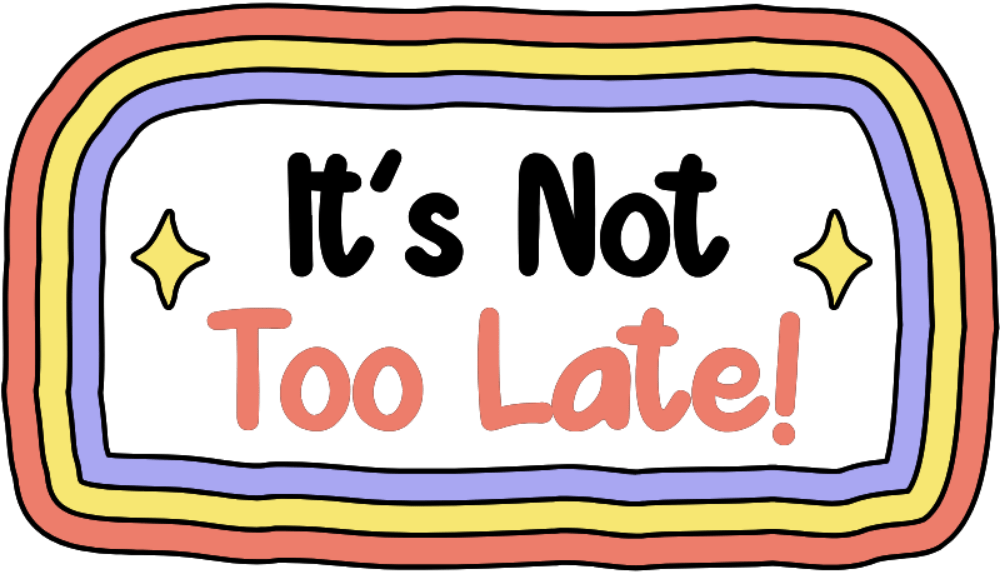This post contains affiliate links. This means I may earn a commission should you choose to sign up for a programme or make a purchase using my link. I affiliate only with products and services that I personally love using or that are credible:)
Trust is the glue of life.It’s the most essential ingredient in effective communication. It’s the foundational principle that holds all relationships together. Stephen R.Covey.
Stephen R. Covey hit the nail on the head with his insight, and here I am with yet another relationship post to turn that wisdom into actionable steps for you.
Trust isn’t just a word; it’s the backbone of a solid relationship.
It’s about relying on your partner and knowing they’ll do the same. In a nutshell, it’s the confidence that binds you two together. As we venture into this guide, let’s break down trust into its building blocks, understanding what it means and how to rebuild trust in a relationship.
So, let’s get straight into building a stronger foundation for your relationship.
Common Causes of Trust Issues
Trust issues often stem from past experiences where betrayals or breaches have left a lingering impact.
Misunderstandings play a significant role, creating gaps in communication that can erode trust over time. Unmet expectations, whether unspoken or unclear, contribute to the fragility of trust in a relationship.
You need to delve into these common causes, shedding light on the intricacies that might be influencing the stability of trust within your relationship.
Communication Strategies for Rebuilding Trust

Open and honest conversations
Alright, let’s delve into the powerhouse of trust rebuilding—communication. Embrace the significance of transparent communication that not only addresses the issues at hand but also lays the groundwork for rebuilding trust. It’s time for you to foster a space where open and honest conversations become the catalyst for rebuilding the foundation of trust in your relationship.
Rebuilding Emotional Connection
Ever heard the phrase “actions speak louder than words”? Well, when it comes to rebuilding trust, those actions are the bricks in your relationship. This part is all about fostering emotional intimacy, a key ingredient in the trust recipe. You’re about to discover techniques that go beyond verbal communication, reinforcing the link between emotional connection and the gradual reconstruction of trust.
Get ready to roll up your sleeves and engage in conversations that go beneath the surface. It’s your time to build a bridge, strengthening the emotional foundation of your relationship.
Questions to Rebuild Trust in a Relationship
Self-Reflection Questions
Before you dive into these questions, take a moment for personal introspection.
Consider you role in the trust dynamics, reflecting on specific actions that may have contributed to challenges.
These questions aim to guide you towards self-awareness and personal growth, which are the crucial elements in rebuilding trust.
- What do you think you can do to improve trust in our relationship?
- Can you share any specific actions that may have caused trust issues?
- How can we become more aware of our roles in trust challenges?
- Are there patterns in how we handle conflicts that we should address?
- What steps can you take to grow personally within our relationship?
- How do you usually handle misunderstandings, and how can we make it better?
- Can we identify any unspoken assumptions that might be affecting us?
- What aspects of our communication could use improvement to rebuild trust?
- How do you see personal growth impacting our ability to rebuild trust?
- Are there any self-improvement goals you’d like to set for our relationship?
Mutual Understanding Questions to Rebuild Trust in a Relationship

Before engaging in these questions, reflect on the events leading to trust issues and align your expectations for better mutual understanding.
These questions focus on bridging gaps in perception and fostering shared goals to rebuild trust.
- What’s your take on the events leading to trust issues in our relationship?
- How can we align our expectations for better mutual understanding?
- Are there assumptions or beliefs causing misunderstandings?
- How can we bridge gaps in our perceptions to deepen our connection?
- How will our shared goals help rebuild trust between us?
- Are there specific topics or concerns we should address for better understanding?
- Can we identify communication barriers hindering our understanding?
- What strategies can we use to strengthen our emotional connection?
- How can we appreciate our differences while rebuilding trust?
- How would you define a successful outcome in terms of mutual understanding?
Communication Improvement Questions
As we delve into these questions, consider the communication habits that may need adjustment. Reflect on positive communication experiences and think about the role of active listening.
These inquiries aim to improve your overall communication and build a more trusting connection.
- How can we create a safe space for open and honest communication?
- Are there communication habits we should change to foster trust?
- What strategies can help us address communication challenges?
- How can we navigate sensitive topics in our communication?
- What communication skills would you like to develop for our relationship?
- How important is active listening in our communication, and how can we improve it?
- Can you share positive communication experiences we can build upon?
- How do you handle disagreements, and what changes can we make for constructive dialogue?
- What strategies can ensure consistent and open communication over time?
- How can we use technology and other mediums to strengthen our connection?
Building Emotional Connections to Rebuild Trust in a Relationship

Before exploring these questions, think about the activities and gestures that make you feel emotionally connected. Reflect on positive past experiences and consider the role of physical affection.
These questions aim to enhance your emotional bond and contribute to the overall rebuilding of trust.
- What activities or gestures make you feel emotionally connected?
- How do you express and receive love, and how can we align our preferences?
- Are there positive past experiences that influenced our emotional connection?
- How can we prioritise quality time to strengthen our bond?
- What role does physical affection play, and how can we enhance it?
- How can we create simple rituals or routines to foster connection?
- Are there specific shared experiences or memories we can build upon?
- How can we express vulnerability to strengthen our emotional bond?
- What activities can we implement to maintain our emotional connection?
- How do you see our emotional connection contributing to rebuilding trust?
Setting boundaries and expectations
Consider the importance of clear boundaries in your relationship. Reflect on your expectations and how aligning them can foster mutual understanding.
These questions are designed to guide you in defining boundaries and addressing expectations for a healthier connection.
- How can we discuss and define clear boundaries in our relationship?
- What specific areas require clear boundaries to rebuild trust?
- How can we ensure our expectations are aligned for mutual understanding?
- Are there past instances where unclear boundaries contributed to trust challenges?
- In what ways can we communicate and reinforce our expectations moving forward?
- How do you envision setting boundaries contributing to rebuilding trust?
- Can you share examples of situations where setting boundaries positively impacted our relationship?
- What steps can we take to navigate potential conflicts regarding boundaries and expectations?
- How often should we revisit and reassess our boundaries to ensure they remain effective?
- Are there specific scenarios where having clear expectations would enhance trust in our relationship?
Exploring Future Goals Together

Before answering these questions, take a moment to think about your long-term plans and how they align with your partner’s vision.
Reflect on the importance of building a shared future. These questions aim to spark conversations about your aspirations and create a vision that contributes to rebuilding trust.
- What questions can we ask each other about our long-term plans to deepen our understanding?
- How can we align our individual goals to build a vision together for our shared future?
- Are there specific aspirations or dreams you haven’t shared that could impact our future?
- In what ways can discussing long-term plans contribute to rebuilding trust?
- How do you see our individual goals complementing each other in our shared vision?
- Can you recall instances where discussing future goals positively influenced our relationship?
- What steps can we take to support each other in achieving our long-term aspirations?
- How often should we revisit and adjust our future plans to ensure alignment?
- Are there potential challenges to our future goals that we should address proactively?
- How does building a shared vision contribute to the overall trust-building process in our relationship?
Forgiveness and Moving Forward
Before addressing these questions, reflect on the concept of forgiveness and its role in moving forward. Consider instances where forgiveness played a positive role in your relationship.
These questions aim to guide discussions on the forgiveness process and collectively moving forward after trust challenges.
- How can we approach the forgiveness process in our relationship?
- What specific actions or behaviours require forgiveness to move forward?
- Are there steps we can take to create a supportive environment for forgiveness?
- In what ways can we discuss and understand each other’s perspective in the forgiveness process?
- How does forgiveness contribute to the overall trust-rebuilding journey?
- Can you share instances where forgiveness positively impacted our relationship?
- What strategies can we implement to collectively move forward after trust challenges?
- How can we ensure a commitment to positive change that accompanies the forgiveness process?
- Are there specific behaviours or habits we should be mindful of to prevent future trust challenges?
- How can we celebrate progress and growth as we move forward in rebuilding trust?
You might also be interested in:
- If You Have a Jealous Partner, Implement These 8 Solutions for Relationship Growth
- 7 Eye-Opening Signs of a Karmic Relationship That You Can’t Ignore
- Beyond Age : Unmasking the 7 Deadly Signs of an Immature Man
How do you rebuild trust in a relationship?
Addressing Betrayal Head-On
Confronting betrayal requires an honest dialogue in a safe space. Acknowledge the betrayal openly, discussing its impact while ensuring both partners feel heard and validated.
Transparency is key; shedding light on the details and implementing strategies to navigate the emotional aftermath are crucial. A cornerstone in this process is recognising the significance of forgiveness, fostering healing, and laying the groundwork for rebuilding trust.
Joint Commitment to Change
After betrayal, fostering a joint commitment to positive change is crucial. Both partners must acknowledge specific behaviours requiring modification, making efforts towards positive change a collective endeavour.
Establish shared goals to rebuild trust, providing a sense of direction. Reflecting on instances where joint commitment led to positive transformations can inspire the process.
Envision the positive impact of mutual efforts, setting the stage for a renewed and resilient connection.
Seeking professional guidance

Couples therapy considerations
Navigating through trust issues may lead couples to consider professional guidance, and couples therapy becomes a valuable option. The role of therapy in rebuilding trust extends beyond mere conflict resolution.
It provides a structured environment for open communication, guided by a trained professional. Couples therapy encourages understanding, offers tools to address deep-seated issues, and fosters healthier ways to rebuild trust.
Tips for finding the right professional support include seeking licenced therapists with expertise in relationship dynamics, ensuring comfort and compatibility, and maintaining a commitment to the process.
Building a Support System
Engaging friends and family in the rebuilding process is an often underestimated yet powerful strategy. Building a support system around the relationship provides emotional reinforcement.
Friends and family can offer unique perspectives, share experiences, and contribute to a sense of community. It’s essential to choose confidants wisely, selecting individuals who genuinely have the couple’s best interests at heart.
Creating a network for emotional support adds an additional layer of strength to the journey of rebuilding trust.
Reaping the Rewards of Rebuilt Trust in Relationship
Strengthen your relationship with these benefits.
As you gradually rebuild trust, you’ll start to witness a multitude of positive outcomes in your relationship.
A more robust foundation elevates your overall relationship satisfaction, nurturing a deeper connection between you and your partner. Experience the ripple effect of enhanced communication, heightened emotional intimacy, and the shared security that comes with rebuilt trust.
Consider this rebuilt trust as a solid platform, empowering both of you to face challenges together.
It becomes the cornerstone of collaborative problem-solving, making your relationship more resilient in the face of future uncertainties. Embrace the positive transformations that come with rebuilding trust; they’re the building blocks of a stronger, more fulfilling partnership.
The journey of trust-building unfolds into a rewarding landscape where the efforts invested yield a more fulfilling and harmonious partnership.
Final thoughts…

As we conclude this guide on questions to rebuild trust in a relationship, let’s recap the key strategies and questions that empower couples on this transformative journey. We have explored the fundamental aspects of trust, identified common causes of trust issues, and delved into communication strategies for rebuilding.
The importance of asking questions about self-reflection, mutual understanding, and communication improvement has been highlighted, along with exploring future goals, setting boundaries, and the forgiveness process.
Ultimately, the rewards of rebuilt trust manifest in a strengthened relationship, offering benefits like improved communication, heightened emotional intimacy, and a resilient foundation to navigate future challenges.
As I encourage couples to embark on this journey, may the insights shared pave the way for healthier, more trusting, and more fulfilling relationships.
As we draw near the end of this blog, if you’re looking to transform your space for some motivation, consider checking out my Etsy shop for prints that inspire and uplift✨And my spiritual art expressions here🪷 Your support is appreciated!
Until next time,
Love, light, and endless inspiration to all.
Neethu.





